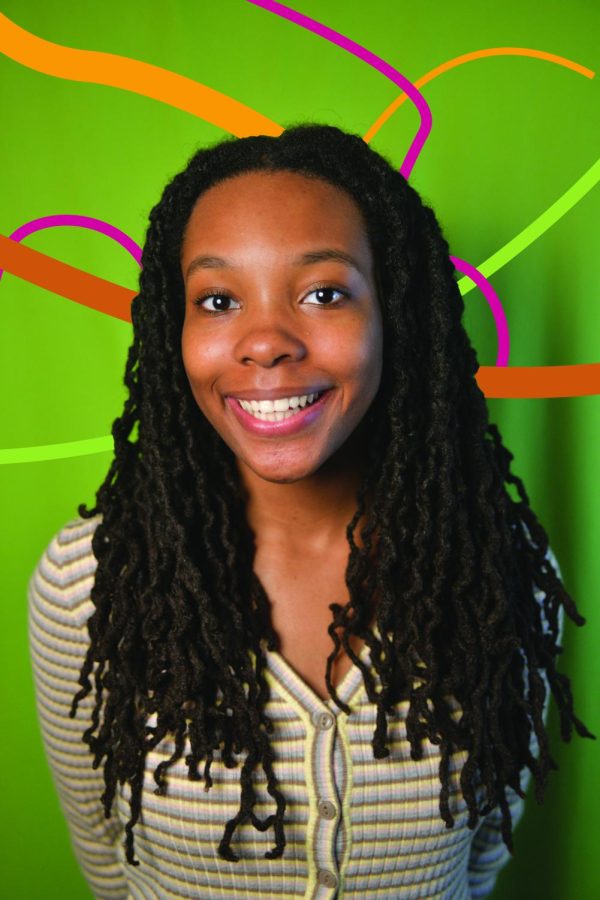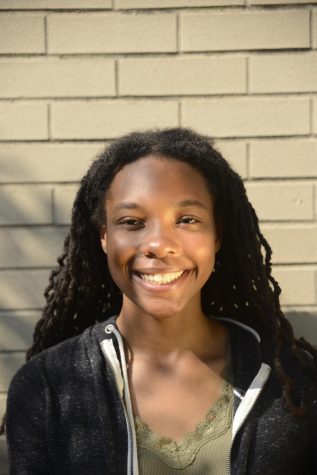THIS IS MUNSTER OPINION: Past, Present.
April 21, 2022
I first learned the difference between past and present tense in second grade. By then, my passion for reading was already teetering on addiction, and I found great joy in identifying the “ed”s attached to the end of each word I could find. The concept enthralled me—I began to relate my world in terms of the past and present. I was hungry (past). Now, I am eating (present). I told a joke (past). My friend laughs (present).
As I continued to age, the playful grammar exercises I made for myself turned into coping mechanisms. In times of trouble I found myself yearning to hide in the past, finding comfort in the known. In eighth grade—the year I transferred to WWMS after five years of being homeschooled—I would spend my lunch hours replaying the events of my weekend and analyzing the small tasks I completed days prior, ignoring the sometimes woefully empty seats next to me.
At times when I sat alone for lunch, my thirteen year-old mind desperately questioned why I struggled so much to connect with others. I would be reminded of awkward Jim Crow discussions from the second grade—was it because I was one of the few Black students at school? This fact definitely did not help; each day I was made painfully aware of my difference through jokes about the “n-word pass” and remarks about my “cheeto-like” hair. However, the microaggressions I faced did not explain the way tongue-tied words would strangle their way out of my throat when speaking to someone, or why I had to make frequent trips to the bathroom to calm my shaking hands and racing heart.
Initially, I came to the conclusion that I simply did not belong at school, or in the larger community of society. Transferring to public school made me indigestible even to myself—I was too shy, always awkwardly off-beat and often lost in the rhythm of conversations among my peers. My close Black friends outside of school began to taunt me for being too “privileged” at my predominantly white institution. At home, it felt taboo to bring up mental health issues like anxiety or depression. At home, it felt taboo to bring up mental health issues like anxiety or depression. I felt completely isolated from those around me, with no clue as to what exactly was keeping me from being comfortable with myself. My only solution, I believed, was living in the past. From quiet recollections of significant moments, to detailed analysis of all the embarrassing mistakes I had experienced until then, I found myself consumed with replaying past moments over and over, avoiding any present dilemmas I was actually facing. Like a broken record player, I was doomed to repeat the same monotonous days, weeks and months without end, never confronting the rut I was stuck in.
It was impossible for my defeated line of reasoning to last, though. No matter how much I longed to ignore my current struggles, my need for peace of mind grew too strong. As time passed, I adjusted to my surroundings at school, but still struggled to make many friends. l. In times of stress I turned to journaling—first as tiny notes in the margins of my notebooks, and soon writing full pages with lines squeezed to the very edge. Like reading, I wrote with a ver and over, avoiding any present dilemmas I was actually facing.
It was impossible for my defeated line of reasoning to last, though. No matter how much I longed to ignore my current struggles, my need for peace of mind grew too strong. As time passed, I adjusted to my surroundings at school. In times of stress I turned to journaling—first as tiny notes in the margins of my notebooks, and soon writing full pages with lines squeezed to the very edge. Like reading, I wrote with a desperate obsession—poetry, short stories and pages of internal monologue. In high school, I found my passion for writing to be so strong I joined the newspaper: now, as a senior, I am the editor-in-chief of Crier. I fought for my life through writing, and succeeded. Though sometimes I may still find myself at odds with the subconscious insecurities I battled in eighth grade, I can truthfully write this: I was afraid to live in my skin (past). Now, I believe life is worth living (present).




